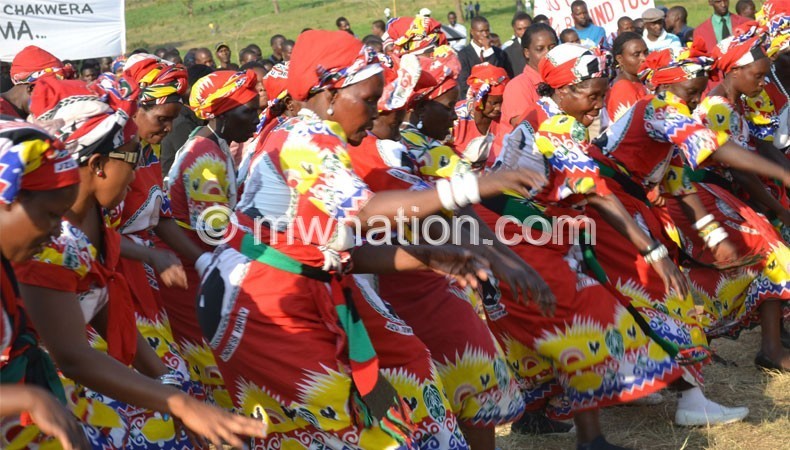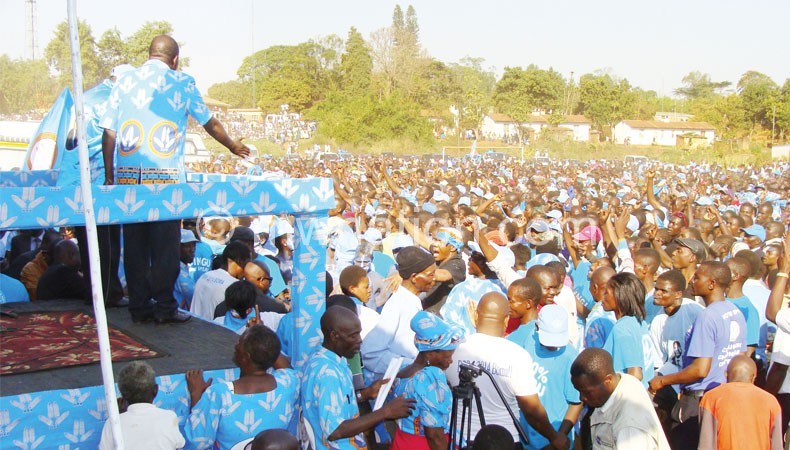Whats inside the draft Political Parties Bill?
In this third part of political party legislation in Malawi, our Senior News Analyst EPHRAIM NYONDO studied the proposed draft Political Parties Bill which the Centre for Multiparty Democracy (CMD) is championing and he highlights its key features. He writes:
Given the significance of political parties and the role that money plays in politics, there is an increasing consensus to regard political parties as public entities that should be subjected to some form of public law. Thus, in almost all democracies, political parties are subject to some kind of legal framework. The debate, however, centres on how extensive such legislation should be and which areas of political parties should be legislated.

CMD has championed the development of the draft Political Parties Bill which, if passed and assented into law, it will repeal the 1993 Political Parties (Registration and Regulation) Act (Cap. 2:07) and replace it with a new law which will address the challenges being faced when regulating the registration, financing and functioning of political parties.
Currently with the Ministry of Justice and Constitutional Affairs, what are some of the key features of the Bill?
—Guiding principles—
According to the Bill, political parties in Malawi shall be founded on principles that are tandem with the Constitution. Such principles, among others, include that every person shall have the right to form a political party and to cease to be a member of a political party, and, again, no person shall be compelled to belong to a political party.
Further, one person shall not be a member of more than one political party; and every member of a political party shall have the right to enjoy the rights and privileges of membership of the party without discrimination.
Additionally, every political party shall have the right to regulate its own affairs and procedures, including the rights and duties of its members.
Institutional set up
What represents a break from the past in terms of political party registration, the Bill creates the new of office of the Registrar of Political Parties. The office, which will perform functions currently done by the Office of the Registrar, will be in charge of registering and deregistering political parties.

the access to information law
One of the challenges faced with registering a political party in Malawi, using the current law, is that the process is quite easy for those who do not pose any danger to the incumbency and too rigorous and difficult to those deemed potential challengers to the incumbent.
To solve the challenge, the Bill does not just provide for thorough procedures of registration, but it also provides for the independence of the office of the registrar of political parties.
Among others, to register a political party the Bill includes the need for those registering to give names, addresses and signatures of not less than 20 members of the party resident in each of the districts of Malawi, which shall reflect fair representation of gender, youth and people with disabilities.
The challenge of the office’s independence is again addressed especially in the area of how he or she will be recruited. The Bill provides that the nominations for appointment to the office of Registrar shall be received from the public by way of a public advertisement placed by the Clerk of Parliament and the successful candidate shall be appointed by the Public Appointments Committee of Parliament in accordance with this section.
Deregistering dormant parties
The Bill provides measures to ensure that once registered, political parties are functional. Currently, there are more than 55 registered political parties yet very few, some say not even 10, are functional in terms of participating in elections. To curb the problem, the Bill provides for deregistration of any that has not held a convention for a period of at least five consecutive years from the date of its registration or the date the party held its last convention.
Further, the party would also risk deregistration if it has not secured at least a seat in parliamentary elections; at least five percent of national votes for parliamentary elections; and, again, at least two seats in local government elections or 10 per cent of the total national votes in the local government elections.
Additionally, if the Registrar is satisfied that the party or its agents are giving handouts during campaign period or elections period, they would also risk registration.
Towards Political financing
As complex organisations that are at the heart of democracy, political parties require financial resources to perform their functions. Money is the all-important oil that keeps the party machinery going. In addition to money, non-monetary resources in the form of access to state premises, media or vehicles are often made available for political parties, and can make valuable contributions to parties’ abilities to organise themselves. In some instances, parties may win or lose elections well before they are held simply on account of their resource endowment or lack thereof. In other instances, how parties practice—or fail to practice—intra-party democracy has, to some extent, been influenced by the way they are financed and how these resources are allocated within the different parties.
Although money is an important asset in politics, it can at the same time be a danger if not well man-aged or regulated; money can provide opportunities for abuse by the governing party as they are in control of public assets. Situations of abuse are particularly common in emerging African democracies that are operating in contexts faced with scarce resources and where it is difficult to track the different sources that political parties can use to get their financing.
To contain the challenge, the Bill provides that political parties are entitled to two forms of political financing. One, State resources and, two, private sources.
On State resources, the Bill provides that a political party which has secured more than one-tenth of the national vote in parliamentary elections shall be entitled to be provided with funds by the State to ensure that, during the life of any Parliament, it has sufficient funds to continue to represent its constituency.
The funds—which are not supposed to be used for personal gain—are supposed to be used in a transparent and accountable manner. Among others, political parties will be required to keep, with a commercial bank in Malawi, a separate bank account into which funds provided to the party shall be deposited.
Further, political parties will be required to keep proper books and records of accounts in relation to the funds, and shall balance its accounts for that year and produce statements of final accounts within six months after the end of each financial year. Not only that, political parties will be required to submit the final accounts to the Registrar who shall forward a copy of the accounts to the Auditor General and the Speaker of the National Assembly.
The Bill also provides that political parties will be able to source funding from private sources—especially from its membership.
It also adds that a registered political party may, for the purposes of financing its activities, appeal for, and receive donations from, any individual or organisation, within or outside Malawi. Further, it underlines those donations, whether in cash or kind, with a monetary value of at least K1 million from an individual donor and of at least K2 million from an organisation shall, within 30 days of its receipt, be declared to the Registrar by the political party concerned. n





